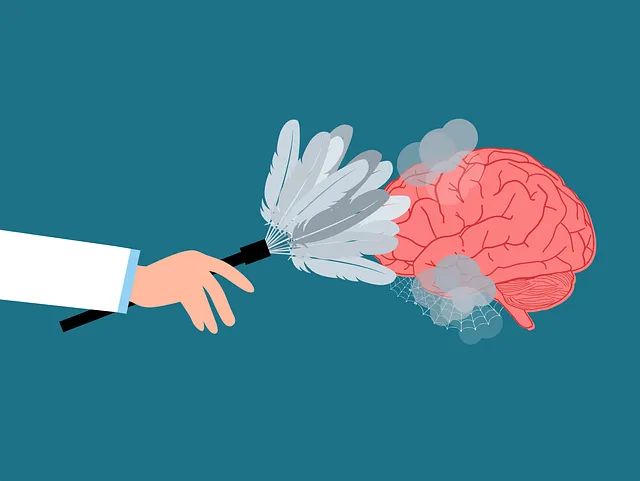Northglenn Kaiser Permanente offers comprehensive mental health coverage designed to support professionals' well-being and resilience, addressing unique risks like burnout and secondary trauma. This includes access to diverse services, counseling, and support groups, as well as proactive initiatives like Stress Management Workshops. A structured risk management plan, involving staff, administrators, and specialists, prioritizes patient safety and ethical conduct through assessment protocols, crisis interventions, and secure data handling. Regular training, clear policies, mental wellness coaching, and continuous improvement ensure dynamic risk management strategies, benefiting both patients and practitioners.
“In the realm of mental healthcare, effective risk management is paramount for professionals aiming to provide optimal patient care. This article guides mental health practitioners through a structured approach to navigate potential risks and challenges. We explore essential components of risk management, focusing on practical strategies tailored to Northglenn Kaiser Permanente mental health coverage. By understanding and implementing comprehensive plans, professionals can enhance patient outcomes and ensure a robust and resilient practice. Delve into these strategies for successful risk mitigation.”
- Understanding Mental Health Risk Management
- Northglenn Kaiser Permanente Mental Health Coverage: What You Need to Know
- Developing a Comprehensive Risk Management Plan
- Implementation and Continuous Improvement Strategies
Understanding Mental Health Risk Management

Mental health professionals are tasked with managing a unique set of risks that can impact their own emotional well-being and that of their clients. Understanding risk management in this context involves recognizing potential hazards such as burnout, secondary trauma, and ethical dilemmas. Northglenn Kaiser Permanente mental health coverage offers essential tools and resources to navigate these challenges effectively. By integrating Emotional Well-being Promotion Techniques, professionals can foster a resilient practice environment while ensuring they maintain their own mental health.
This proactive approach extends beyond compliance; it empowers practitioners to cultivate positive thinking and build coping mechanisms robust enough to handle the complexities of their work. Through strategic risk management planning, mental health professionals in Northglenn Kaiser Permanente can optimize patient outcomes while safeguarding their own emotional integrity.
Northglenn Kaiser Permanente Mental Health Coverage: What You Need to Know

In Northglenn, Kaiser Permanente offers a comprehensive mental health coverage package designed to support professionals in their well-being and resilience building. This program is an essential component of the organization’s commitment to fostering a healthy work environment, especially for those navigating demanding careers in mental health services. The coverage includes access to a wide range of mental health services, counseling, and support groups facilitated by experienced professionals within the Kaiser Permanente network.
One notable aspect of this coverage is its emphasis on proactive wellness initiatives, including Stress Management Workshops Organization, which equips members with valuable tools for managing stress and promoting self-care practices. By integrating these workshops into their routine, mental health professionals can enhance their resilience, improve job satisfaction, and ultimately provide better care to their clients. This holistic approach ensures that Northglenn Kaiser Permanente members have the resources needed to thrive both personally and professionally.
Developing a Comprehensive Risk Management Plan

Developing a comprehensive risk management plan is an essential step for mental health professionals to ensure patient safety and maintain ethical standards. At Northglenn Kaiser Permanente, this process involves a collaborative effort between practitioners, administrators, and sometimes, external specialists. The plan should encompass various aspects of practice, including assessment protocols, crisis intervention strategies, and mechanisms for handling sensitive information securely.
By integrating mental health education programs designed to enhance self-esteem improvement and stress management workshops within the organization, professionals can proactively mitigate risks. These initiatives not only empower practitioners with additional tools but also foster a culture of resilience among staff. Regular reviews and updates of risk management protocols are crucial, especially in light of evolving best practices and advancements in mental health coverage under Northglenn Kaiser Permanente’s policies.
Implementation and Continuous Improvement Strategies

Implementing risk management strategies is a dynamic process that requires ongoing evaluation and adaptation for Northglenn Kaiser Permanente mental health coverage to remain effective. Regular staff training on communication strategies, coupled with clear policy documentation, forms the bedrock of a robust system. Mental wellness coaching programs development can empower professionals to recognize and manage personal risks while enhancing patient care.
Continuous improvement initiatives should involve peer feedback mechanisms, regular review meetings, and data analysis to identify trends in risk incidents. By integrating these practices, mental health providers at Kaiser Permanente Northglenn can foster a culture of proactive risk management, ensuring the best possible outcomes for patients and practitioners alike. This approach aligns with broader efforts in mental health policy analysis and advocacy, promoting safe and supportive work environments.
Mental health professionals play a crucial role in ensuring patient safety and well-being, making effective risk management planning indispensable. By understanding the unique risks associated with mental health practice and leveraging resources like Northglenn Kaiser Permanente’s mental health coverage, professionals can create comprehensive risk management plans tailored to their specific needs. Implementation strategies that prioritize continuous improvement ensure these plans remain dynamic and responsive to evolving challenges. Ultimately, this proactive approach not only mitigates potential harm but also fosters a healthier and more resilient working environment for mental health providers.

